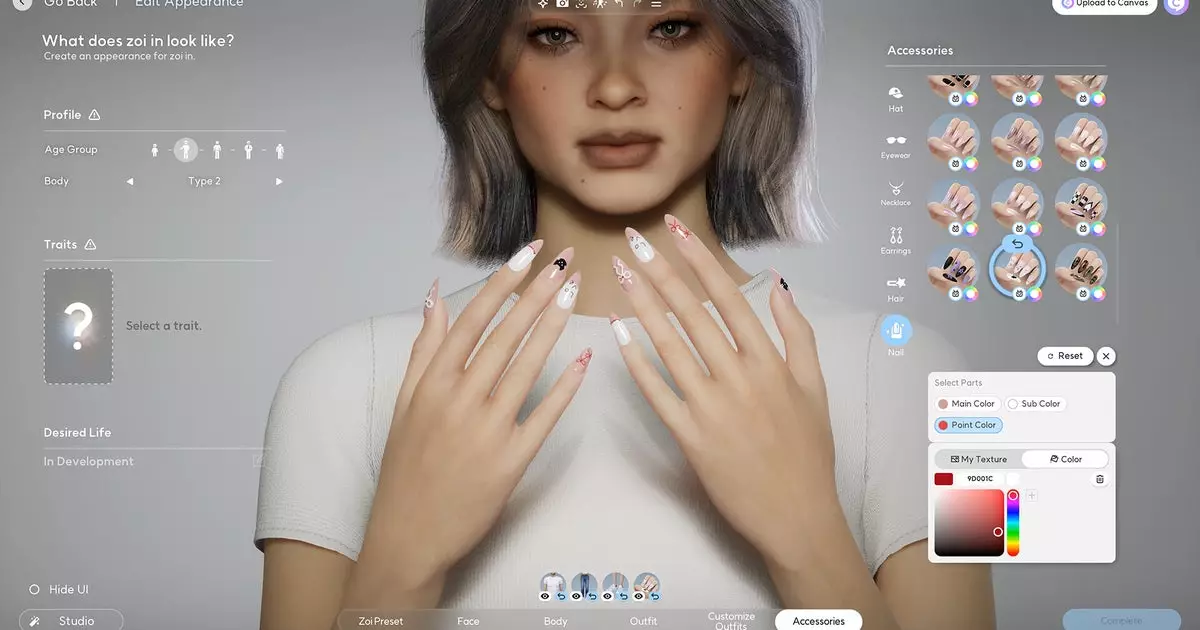In the expansive realm of life simulation games, the announcement of InZoi has taken the gaming community by storm. As this fresh title gears up for its early access launch, priced at $40, the developers are making waves with their promise: “all updates and DLCs will be provided for free” until the game formally reaches version 1.0. Game director Hyungjun Kim’s declaration can be perceived as both appealing and bewildering, and it raises significant questions about the future business model of gaming in a genre dominated by giants like The Sims 4.
At first glance, the notion of offering complimentary updates, especially during early access, seems like a radical and thoughtful approach. It paints the developers as benevolent guardians of player experience, choosing to nurture a burgeoning relationship rather than profit from it immediately. However, let’s peel back the layers — why should early access buyers expect anything less? Early access implies investing in an unfinished project, with the hope that it evolves into something worthwhile. Thus, the promise of free updates may not be as revolutionary as it appears. In a sense, this can be seen as a necessary strategy to win over potential players who have become accustomed to The Sims’ pricey downloadable content.
The Nature of Improvements and Updates
The devil is in the details, though, and one major point of contention is the blurred line between updates and downloadable content (DLC). According to the breakdown of planned updates for InZoi, each scheduled entry will offer various enhancements, tweaks, and entirely new features ranging from an in-game cheat system to improvements in design features like Build mode. Yet, what constitutes an “update” versus a “DLC” can often be subjective, especially in the context of early access. Will features that should traditionally be included in the base game end up being categorized as DLC to justify pricing? While early access creates a unique landscape, these categories risk becoming murky waters for gamers and developers alike.
Though questions remain about the terminology, the innovations and proposed updates speak volumes about InZoi’s ambition. The planned updates promise engaging enhancements such as the ability to adopt characters and create unique relationships, which is bound to entice players looking for deeper engagement in their virtual lives. Additionally, the introduction of various new features like ghost play, which allows players to experience the game from the perspective of a character who has passed away, demonstrates a bold creativity that may differentiate InZoi from its competitors.
Community and Modification: The Heart of InZoi
InZoi positions itself as a champion for community interaction with the inclusion of a mod kit set to debut in May. The success of this new life sim hinges on building a robust community of modders and players alike. With The Sims 4 flourishing on the back of a vast and vibrant modding ecosystem, InZoi must cultivate similar enthusiasm to stand a chance against the juggernaut it seeks to challenge. A thriving community could ignite creativity, expanding InZoi’s longevity well beyond its launch.
The developers have incorporated a diverse array of gameplay mechanisms — including the concept of karma, which affects the lifecycle of characters in the game. If players’ civilizations become clouded with misfortune, their characters may die, leading to ghostly ramifications that could haunt the neighborhood. This adds a layer of strategy and storytelling that is often a missed opportunity in life simulation games, where mechanics can sometimes feel shallow or repetitive.
The looming potential of replayability, facilitated by the community-driven modifications, could solidly anchor InZoi within the gaming culture. If they can effectively execute and promote these features, they will not only appeal to fans of life sims but also attract those who thrive on user-generated content.
Shifting Paradigms in Gaming Financial Models
Ultimately, InZoi’s approach to bundling free updates within an early access model challenges the traditional paradigms of revenue generation in gaming. While such a strategy may initially attract gamers cautious of overpriced DLCs, the long-term viability of this model remains to be seen. Will players embrace this benevolent approach, or will they grow weary if updates fail to meet expectations?
Given the unpredictable nature of game development — particularly for newly minted titles — developers must tread carefully. The decisions they make on pricing, updates, and community engagement could set a precedent for how forthcoming games navigate the turbulent waters of consumer expectations and fiscal sustainability. While the promise of free updates may currently feel like a gift to gamers, it raises questions about just how generous they can be in the future as they look to recoup costs and establish a commercial presence in a saturated industry. InZoi’s journey to carve its niche amongst the titans lies ahead, and the gaming world will be closely watching its evolution.

